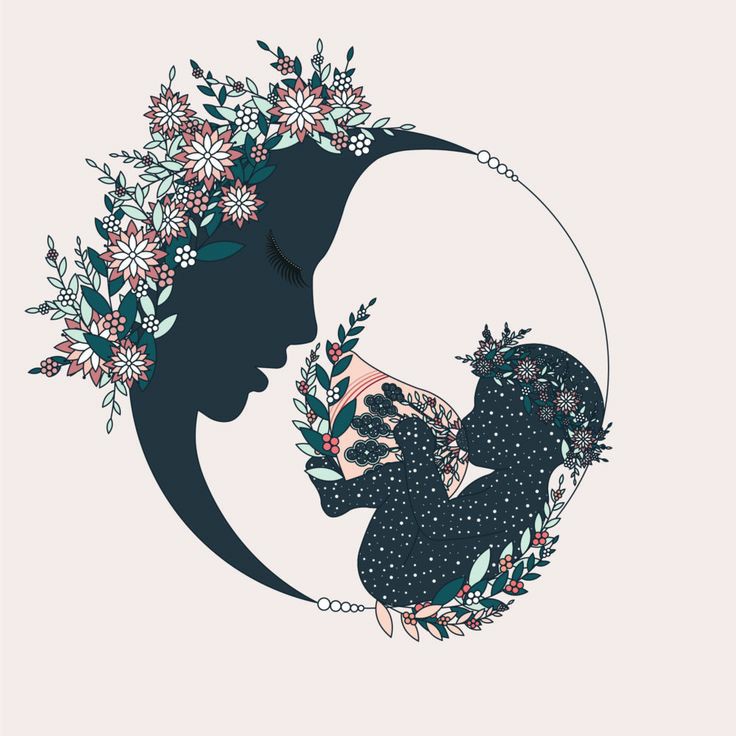Infant Protection Day is observed on 7th November to raise awareness for the protection and development of infants. Around the world, it is estimated that in 2019, approx 2.4 million children died in the first month of their life. Globally 7,000 newborns die every day, which constitutes 47% of all child deaths, under the age of 0-5 years, which was 40% in 1990.
According to The World Health Organisation’s report, In 2019, 2.4 million children died in the first month of their life. Every day there are approximately 7,000 deaths each day, which constitute 47% of all child deaths (under the age of 5 years), which estimates to one-third of deaths on the day of birth and approx three-quarter deaths within the first week of life.
The toddlers are little and vulnerable, like the beginning of all things, a ray of hope, and a dream of possibilities. After all, they are the future and it is rightly opined that ‘today’s children are tomorrow’s citizens.’ Hence it is very important to protect the infants for the sake of a peaceful tomorrow and to make the world a better place. Children are not anyone’s property; they are neither the property of their parents nor the society but are for sure our collective responsibility.

Although the total number of newborn deaths globally showed a decline in figures from 5 million in 1990 to 2.4 million in 2019, and the report stated that newborns face the greatest risk of deaths in their first 28 days.
Infant Protection Day promotes the proper development of infants and children to protect the well being and health of both mother and child. Alarmingly the first few hours and days are the most critical ones, for both to be carefully handled for their healthy future. Hence being careful toward them becomes our priority as the ‘future of the society lies on the nobility of infants today!’
Infant Mortality Rate in India
The rate of infant mortality in India is much higher than in other developed countries. According to the findings of The United Nations’ Child Mortality report In India, 721,000 infant deaths were reported in 2018, which means an average of 1,975 deaths per day.
The increasing burden of the population with supplementary lack in the health service facility, lack of proper awareness, and ignorance are the leading factors mainly contributing to an increment of the mortality rate. Breastfeeding which is a boon to the newborns as mother’s milk is the main source of protein and vitamins & proves as nectar for her child is not considered unfashionable in today’s world and thus, to the lack of proper nutrition, the child succumbs to infections easily and even loses the battle of life, when it doesn’t get medical facilities on time or proper care.

Many measures have been announced by the government to prevent infant mortality and also various schemes, catering to the need, of both mother and the child are brought, to its implementation.
Let’s look at the data from different countries with the highest number of newborn deaths in 2019.
Top 10 countries with the highest number (thousands) of newborn deaths- 2019Country |
Number of newborn deaths (thousands) |
| India | 522 |
| Nigeria | 270 |
| Pakistan | 248 |
| Ethiopia | 99 |
| The Democratic Republic of the Congo | 97 |
| China | 64 |
| Indonesia | 60 |
| Bangladesh | 56 |
| Afghanistan | 43 |
| United Republic of Tanzania | 43 |
The given estimate clearly shows the position where India stands and how the structural issues like lack of appropriate facility at primary centers, delays in referring patients (to specialists), and unavailability of timely transportations which lead to high infant deaths.
Importance of Breastfeeding for the newborn
Undernutrition is estimated to be associated with 2.7 million child deaths annually or 45% of all child deaths. Breastfeeding is most important to improve & encourage the wellbeing of the child, improve their survival rates, and promote their growth and development. The starting two years are very crucial for the child as a lack of proper nutrition during this period can result in serious problems.
Optimal breastfeeding is so critical that it could save the lives of over 8,20,000 children under the age of 5 years, each year.
According to sources, the first two years of a child’s life are particularly very important as the fulfillment of all the proteins and minerals can boost the child’s health or the lack of it can lead the child to suffer from undernutrition and other diseases.

It has been recommended by both WHO and UNICEF that:
- Early initiation of breastfeeding within 1 hour of birth.
- Exclusive breastfeeding for the first 6 months of life.
- Introduction of nutritionally-adequate and safe complementary (solid) foods at 6 months together with continued breastfeeding up to 2 years of age or beyond.
Whereas, most of the infants and children do not get minimum feeding. For example, during the years between 2015-2020, only 44% of infants aged between 0 to 6 months were exclusively breastfed, globally.
With all the challenges, the world has still made an appreciative substantial progress in child survival since 1990. The neonatal deaths all around the world declined from 5.0 million in 1990 to 2.4 million in 2019. But still, India has a long way to go to improve the health facility, with a history of spending a very little amount on health services and a declining GDP, it’s a big challenge for India. UNICEF has also joined hands with many organizations including government, civil society, etc in building communities and families to make a better world for the newborns.
Read: International Poverty Eradication Day: Extreme Poverty And COVID-19
Also Read: World Tsunami Awareness Day 2020: History & Significance











